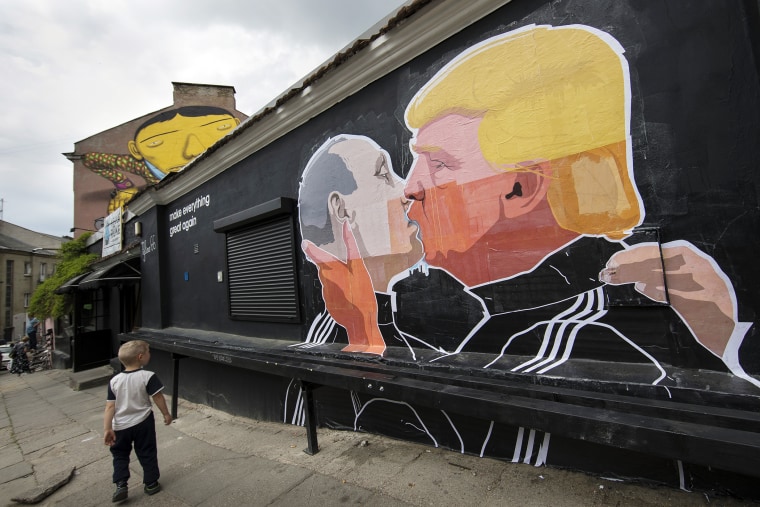At the time, it was an exchange that went by without causing much of a stir. In early May, Donald Trump sat down with Fox News' Bret Baier, who asked the Republican candidate whether he's ever spoken directly to Russian President Vladimir Putin. "I have no comment on that," Trump replied. "No comment."
Baier pressed further, noting Trump's usual habit of answering any question. Again Trump said, "I don't want to comment," adding that he was concerned about possibly undermining Putin's "confidence."
We've seen quite a few Trump interviews since he launched his White House bid, but this is probably the only time he said "no comment" three times in 20 seconds.
Two months later, questions about just how cozy Trump is with the Russian autocrat are growing a little louder. Take, for example, this Washington Post column on the Republican Party's national platform, which Team Trump largely ignored -- except for the part about Russia.
The Trump campaign worked behind the scenes last week to make sure the new Republican platform won't call for giving weapons to Ukraine to fight Russian and rebel forces, contradicting the view of almost all Republican foreign policy leaders in Washington. [...] Republican delegates at last week's national security committee platform meeting in Cleveland were surprised when the Trump campaign orchestrated a set of events to make sure that the GOP would not pledge to give Ukraine the weapons it has been asking for from the United States.
These details have not been independently confirmed by NBC News, though the New Yorker's Ryan Lizza, reporting today from the Republican convention, said he'd spoken to a GOP congressman who believes the "most under-covered story of convention" is Team Trump's efforts to change the party platform "to be more pro-Putin."
In his much-discussed convention speech last night, New Jersey Gov. Chris Christie (R) insisted Russia is "an adversary led by a dictator who dreams of reassembling the old Soviet empire," and I couldn't help but wonder: does Christie understand how much his pal Donald Trump likes that dictator?
As regular readers know, this isn't entirely new. The first sign of trouble came late last year, when Trump, during an MSNBC interview, was asked about Putin's habit of launching invasions and targeting critics. "He's running his country, and at least he's a leader," Trump replied, "unlike what we have in this country."
Reminded that Putin is accused of ordering the murder of journalists, Trump effectively said he doesn't believe the accusations and ultimately doesn't much care. "Well, I think our country does plenty of killing also," the Republican nominee said in December.
Trump laid out his foreign-policy vision in April, which talked at length about projecting U.S. "strength" -- except towards Russia, with whom he wants to end "this horrible cycle of hostility."
Making matters slightly worse, Trump hired lobbyist Paul Manafort to be his campaign chairman, despite (because of?) Manafort's previous work on Putin's behalf. Retired Army Gen. Michael Flynn, a leading Trump advisor, also has unusually cozy ties with Putin's Russia.
Slate's Franklin Foer noted two weeks ago, "If the Russian president could design a candidate to undermine American interests -- and advance his own -- he'd look a lot like Donald Trump." New York's Jon Chait added this week that Trump's relationship with Russia "is disturbing and lends itself to frightening interpretations."
One of these days, this really should be a campaign issue that requires more than just a "no comment."
